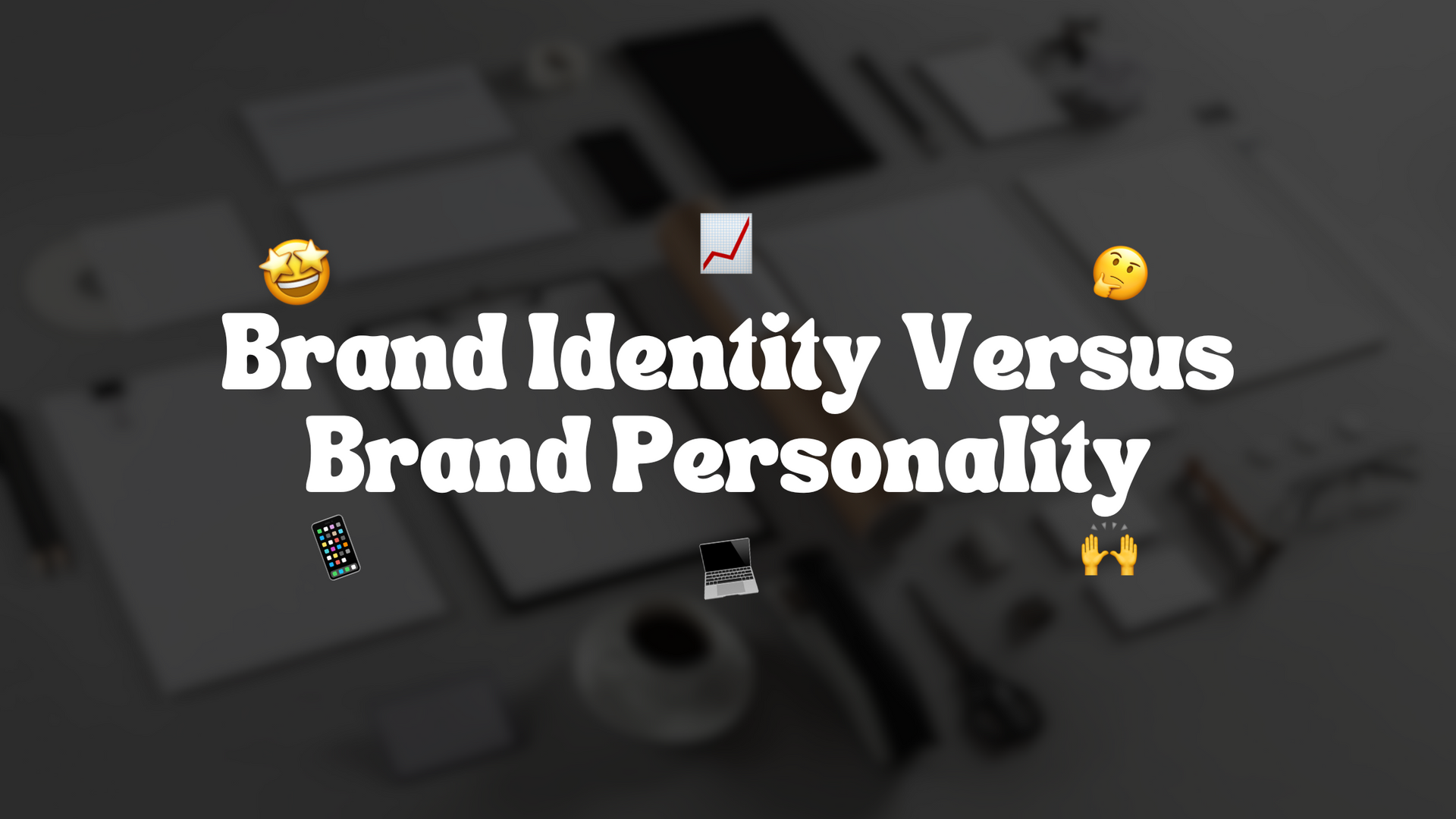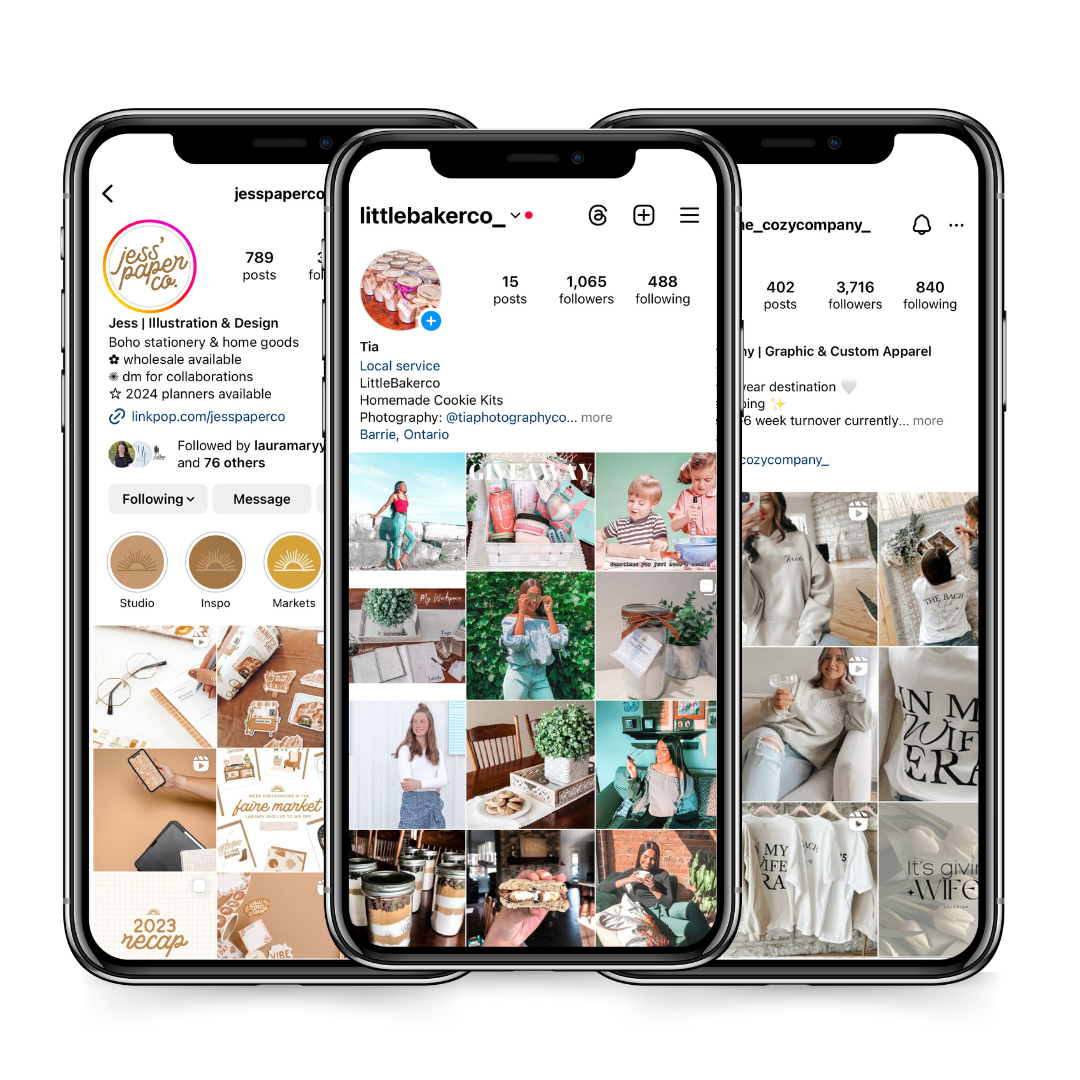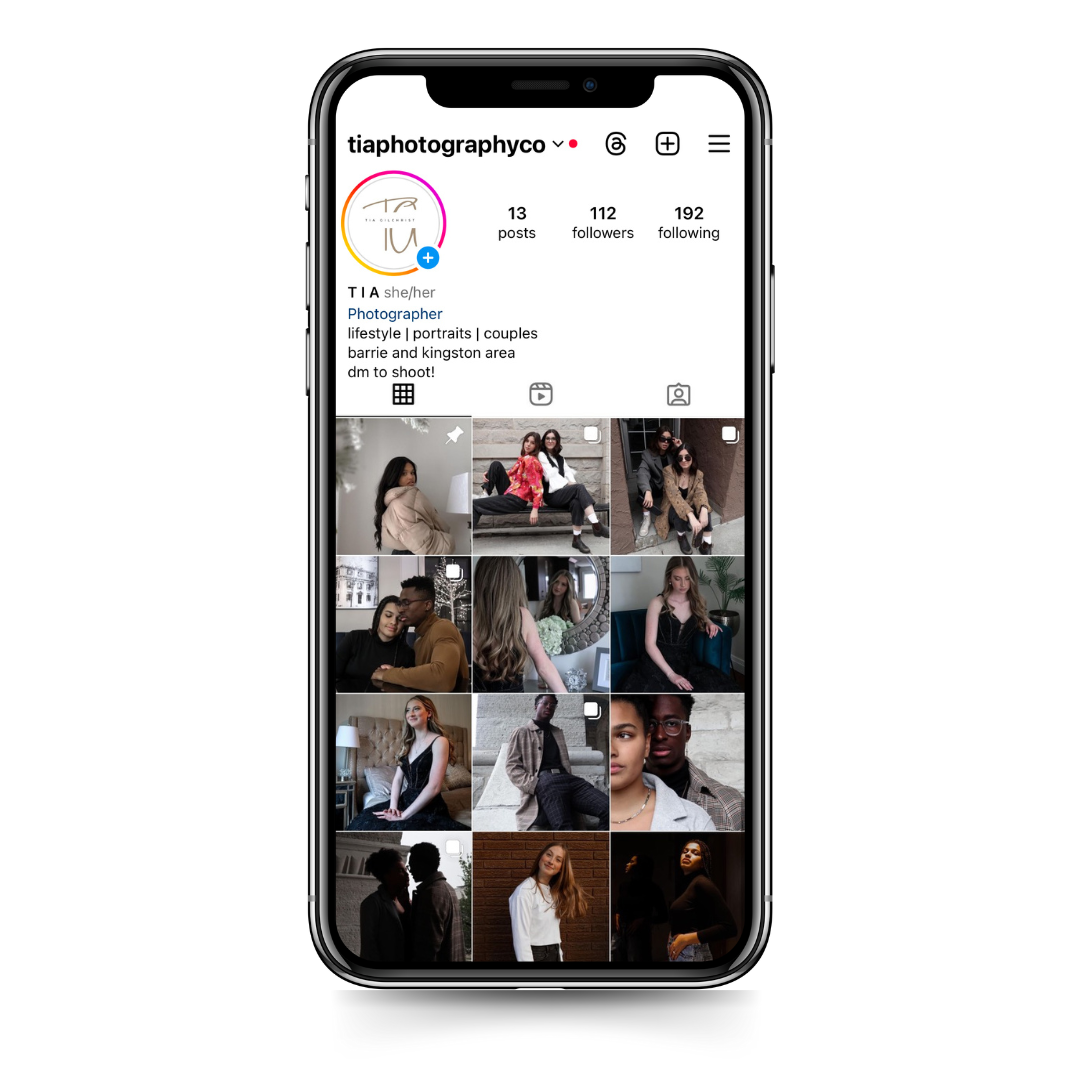Brand Identity Versus Brand Personality

When putting your target audience into perspective, what do you think is the best way to connect with them? The answer is through your brand personality, and how authentic you’re being with your target audience. In fact, 88% of consumers say authenticity is an important factor when contemplating which brands to support. Brand identity helps your target market understand your brand, relate to you, and it makes you stand out from your competitors. Now, more than ever, it’s crucial to share who you are through your branding, ultimately allowing your customers to connect with your brand (and you!).
What is Brand Identity?
Brand identity is the foundation for your brand and what makes it unique. It is your company’s face, and reflects who you are as a person and if you’re working with others, your team as well. Brand personality can be depicted with core values, beliefs, tone of voice and visual identity. These elements help shape your voice and how you want to be perceived by the world. You want your customers to feel connected to your brand, or vice versa. Maybe you’re not what they had in mind, and that’s okay! Stay true to who you are as a person and company, and it will get you farther than you can imagine. Brand personality can be compared to actual human traits. Some of these traits include being trustworthy, loyal, versatile, dynamic, compassionate, innovative, and the list goes on.


Factors of a Strong Brand Personality
There are different factors to building a strong brand personality, all in which you need to ensure your brand stands out from the crowd.
These factors include:
Clarity: You need to be clear in your messaging for your brand so that your audience understands what you are trying to say.
Relatability: Everybody wants to connect with brands on a personal level. Allowing your customers to relate to you helps them feel a sense of friendship and ultimately tells them they can trust you for the long run.
Consistency: You want a brand that people feel they can rely on and you can achieve this goal by being consistent in your brand image.
Memorability:
If you build a strong brand image, people will be more likely to remember your brand. A positive vibe from your brand can cause people to pick your brand over competition because you’re the first thought that came into their minds.
Define Your Brand Personality
Let’s apply the above. Think of your brand as if it was yourself you were taking notes on. What are some of your unique characteristics? Are you a loyal friend? Are you personable towards others? Do you adapt to your surroundings to keep up? Whatever the traits may be, think of this as a guide to understanding who you are as a person. This is a task that takes discipline, but it’s great for understanding who YOU are.
Next, think about how these traits will be perceived by others. Will they resonate with you and your traits? Will there be a positive or negative effect? No matter what the answer may be, just remember not EVERYONE is going to love ALL of your traits. So, you still have to stay true to who you are. Once you acknowledge the traits you think best describe yourself, you can go ahead and move forward and start to create content that adheres to these traits.


Content that Connects with Your Audience
You may be asking, “Now that I have my characteristics how do I match my content to this?” and there is an answer to that! Now before we get into that I would just like to share something. I like to think of myself as a funny gal. I love telling jokes to make people laugh and I’m always the first person people look to for a good story. This is an awesome way for me to connect with family members, co workers, friends, and even people I meet on a whim. I can’t stress enough how important it is for your audience to feel like they have a close relationship with you and your brand. Storytelling is an impactful way to get people to understand you better as a person and it helps you share details about yourself you want your audience to know. However, the stories you’re sharing need to be able to resonate with your audience. Telling stories and sharing experiences can really connect with people's emotions. It's a great way to show what your brand stands for and why it exists. Plus, it helps to prove that your brand knows what’s up and can be trusted.
Representing Your Brand Personality in the Long Run
It’s important to be the face of your brand. Don’t hide who you are, it’s not cute. Putting yourself out there and letting people see and hear you can make your brand feel more human. It builds trust and a good relationship with others and makes people feel like they're part of something.
You can share your face and voice through things like:
- Pictures
- Videos
- Podcasts
- Live broadcasts
- Online seminars
- Interviews
When sharing, make sure you stay confident, authentic, and approachable towards your audience.

It's crucial for brands to be genuine to connect with their audience. By staying true to their unique traits and sharing relatable stories, brands can build trust and loyalty. Consistently showing who they are across different platforms helps people remember them. Being open and friendly when interacting with customers makes them feel like part of the brand's community. Overall, being real and consistent helps brands create strong relationships with their audience.


